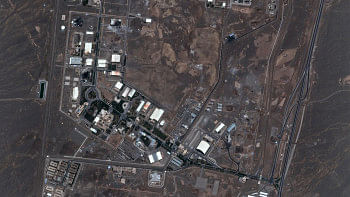Economists outline top priorities for new finance adviser

The priorities of newly appointed finance adviser Salehuddin Ahmed should be to make key financial institutions functional immediately, control inflation, and present accurate data on exports, imports, GDP and important economic indicators, economists said.
They added that the finance adviser must also concentrate on streamlining major institutions and formulating a proper economic policy.
However, immediate restoration of law and order is the top priority, they stressed.
There have been scenes of chaos around the country since Sheikh Hasina resigned from her post as prime minister and fled the country on August 5.
An interim government, headed by Nobel Peace Prize laureate Dr Muhammad Yunus, was sworn in on August 8 and Ahmed, a former central bank governor, was appointed as the finance and planning adviser.
Economists said Ahmed should immediately address vacancies in the banking sector, including the appointment of a governor and deputy governors in the Bangladesh Bank (BB), who resigned in recent days.
Although the economy has virtually come to a standstill given the state of affairs in recent times, it was expected that problems would begin to be resolved following the installation of an interim government.
For instance, the banking sector has been encumbered with bad loans while a majority of non-bank financial institutions are struggling to survive owing to the greed of their owners.
Mustafizur Rahman, a distinguished fellow at the Centre for Policy Dialogue (CPD), said the finance adviser's first job would be to control inflation with strong monetary and fiscal policies as well as improved market management.
The formation of a banking commission is long overdue, he said, adding that the job of such a commission will be to segregate wilful defaulters and normal defaulters.
He also said that presenting correct data is very important to ensuring accuracy in the calculation of economic indicators such as economic growth, exports and imports, and inflation.
According to Rahman, another priority is to stop money laundering by empowering financial intelligence agencies, which will in turn augment the inflow of remittances through formal channels.
Additionally, the government should stabilise the foreign exchange market and check under- and over-invoicing so that the central bank's foreign currency reserves increase, he also said.
The finance adviser should also streamline the stock markets and ensure quality implementation of projects under the annual development programme (ADP).
Debt management and publishing a whitepaper on the banking sector are two other important priorities for the new finance adviser, Rahman added.
Ahsan H Mansur, executive director of the Policy Research Institute of Bangladesh (PRI), echoed Rahman's sentiments.
Mansur said the finance adviser's first task should be bringing stability to the banking sector and immediately appointing a governor and deputy governors at the central bank.
A 100-day priority work plan should also be outlined, detailing the reforms that the finance adviser wants to bring and how much time he will take to implement them, Mansur said.
"The action plan should be like an index of a book. Financial reforms should include reforms in the revenue sector, including taxation, VAT and customs, as well as restructuring for trade facilitation and LDC graduation," Mansur said.
Such reforms will also increase revenue generation, which will enable greater spending on education and health.
Mansur suggested creating two separate commissions or taskforces: one for the banking sector and another for stock market, bond market and the insurance sector.
The banking commission will monitor the balance sheets and audit reports of every bank, he added.
Zahid Hussain, a former lead economist of the World Bank's Dhaka office, said filling vacancies in key financial institutions such as the central bank should be the finance adviser's first priority.
Removing inefficient and corrupt individuals alongside those who were recruited through political considerations is another priority, he added.
He further said preventing extortion in the essential commodities market could lower prices of goods. Hussain also suggested prioritising the introduction of the proposed prompt corrective action (PCA) framework.
Selim Raihan, executive director of the South Asian Network on Economic Modelling (Sanem), said: "From a broader perspective, restoring law and order is the immediate challenge, which is the job of not only the finance adviser but of the entire government."
Restoring the supply chain, boosting economic recovery and controlling inflation are other priorities, he said.
Bringing back confidence among private sector entrepreneurs is also very important as investment, exports and imports were severely dented by the latest spell of unrest.
The finance adviser needs to hold regular meetings with private sector entrepreneurs because foreign investors are very concerned, Raihan added.
He also said the finance adviser should be given charge of the commerce ministry as it plays a big role in stabilising commodity markets.
Lastly, he said the proposed budget needed to be overhauled. "This is the golden time for an objective budget and to take realistic steps as the budget was given with some unrealistic figures."


 For all latest news, follow The Daily Star's Google News channel.
For all latest news, follow The Daily Star's Google News channel. 





Comments